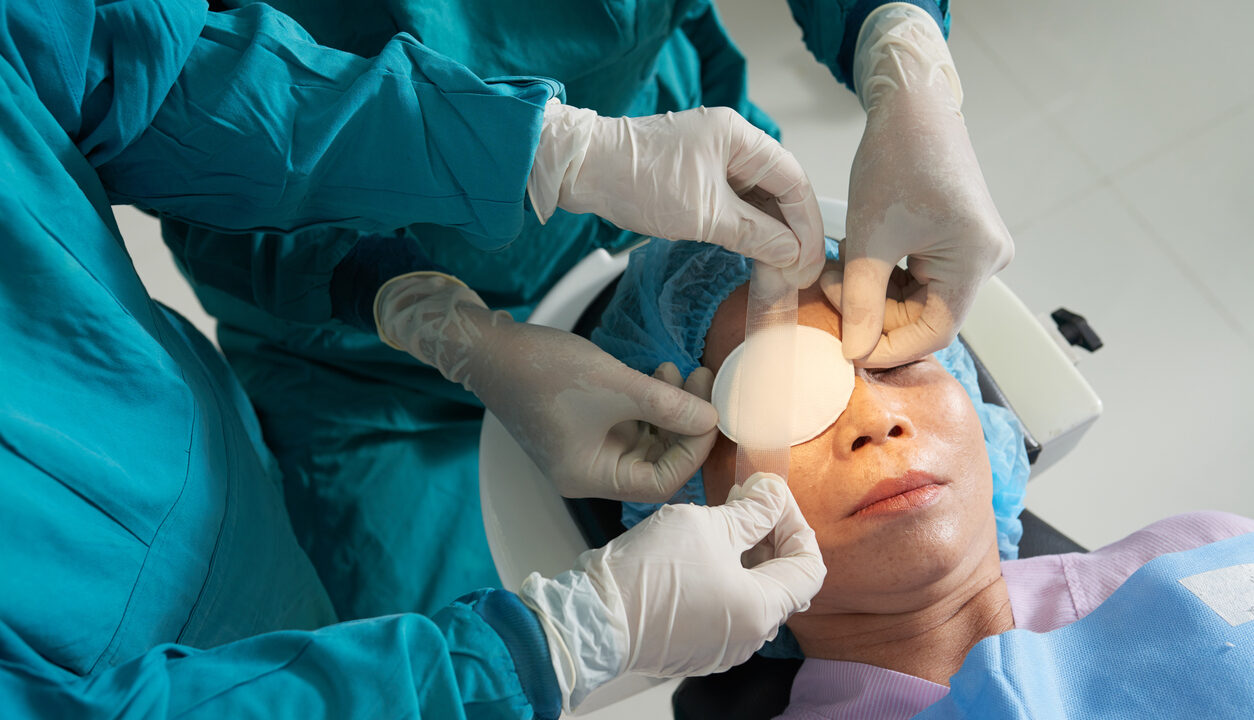Medical Negligence in NSW: How It Works and What You Can Claim
Every day, millions of people across NSW rely on healthcare — whether it’s a visit to the GP, a hospital procedure, or picking up a prescription. Most of the time, things go as expected. But when a medical professional makes a mistake or fails to meet the required standard of care, the consequences can be serious. That’s where a medical negligence claim can assist.
A successful claim can cover far more than just your treatment costs. You may also be entitled to compensation for lost income, future medical expenses, and the pain and suffering caused by your injury.
Below, you’ll find our complete guide to medical negligence claims in NSW, including what you can claim for, how payouts are calculated, and what to expect from the legal process. Prefer to speak to someone now? Get in touch with our experienced medical negligence lawyers for a free consultation.
What is a medical negligence claim?
A medical negligence claim is when you sue a doctor, dentist, hospital or other medical professional for poor care. You might also hear it referred to as ‘medical malpractice’.
For a successful claim, you need to show that the treatment you received fell below a reasonable standard, and your injury happened as a result.
In NSW, the most common examples of medical negligence include:
- Paediatrics and gynaecology errors.
- Improperly inserted implants.
- Failure to advise of medical risks.
- Referral errors by GPs.
Don’t worry if your situation isn’t listed — these are just a few examples of medical negligence claims we’ve successfully handled.
If you’ve been injured due to a medical mistake, poor treatment, or care that simply didn’t feel right, you could have a case. Get in touch with our experienced medical negligence lawyers in NSW for a fast, free assessment. We’ll take the time to listen to your story and explain exactly where you stand.
Start your free online claim check
Find out if you’re eligible for a medical negligence claim in NSW today.
What is the average payout for medical negligence in NSW?
In NSW, the average medical negligence payout typically falls between $250,000 and $500,000. However, these figures are just a guide. The actual amount you receive will depend heavily on your personal circumstances and the severity of the negligence.
Several factors influence the size of your medical negligence payout, including:
- The seriousness of your injury.
- The impact on your daily life and future independence.
- Whether you can return to work.
- Your ongoing treatment needs.
- How clearly the medical provider failed in their duty of care.
- The strength of the evidence supporting your claim.
Example medical negligence payout ranges
- Minor or moderate injuries ($100,000 – $200,000): these are injuries with short-term effects, such as a delayed diagnosis that doesn’t affect the prognosis much.
- Moderate injuries ($250,000 – $750,000): these are slightly more severe injuries, such as a misdiagnosis causing long-term complications or avoidable surgery.
- Severe or catastrophic injuries ($1 – $10 million+): for injuries that lead to permanent disability, brain damage, or the need for 24/7 care, your payout could reach into the millions.
Calculating your medical negligence payout in NSW
When it comes to medical negligence claims in NSW, your payout isn’t just based on bills or receipts. It’s about the full impact your injury has had on your life: financially, emotionally, and physically. Depending on your circumstances, your compensation may include:
- Lost income: covering any wages you’ve lost, super contributions, and the injury’s impact on your future earning potential.
- Care and support: whether you’ve needed professional help or unpaid assistance from friends or family. You can also get compensation if you’re no longer able to care for someone who relies on you, like a child.
- Out-of-pocket expenses: like travel to appointments, ongoing treatment, rehabilitation, or even home and car modifications if you need them.
- Non-economic loss: often called pain and suffering, this refers to the emotional impact of your injury on your life.
One of the most significant parts of a medical negligence payout is compensation for non-economic loss. That’s because it isn’t tied to a dollar figure like lost wages or medical costs, so you could receive a substantial lump sum.
In NSW, there’s a three-step process for figuring out if you’re eligible for non-economic loss and calculating how much you’ll receive:
- Your injury is assessed: an independent medical assessor will review your condition and compare it to the ‘Most Extreme Case’ (MEC), which is the worst possible injury outcome. For example, if your situation is assessed at 25% of the MEC, it means your injury is considered to be one-quarter as severe as the most extreme case imaginable.
- You must meet the threshold: you need to be assessed at 15% or more of the MEC to be eligible for non-economic loss. If your injury is rated below this, you can still make a medical negligence claim for economic losses like lost income or treatment costs.
- Your payout is calculated: your MEC percentage is then applied to the maximum payout for non-economic loss. In NSW, that maximum is currently $761,500, but it goes up each year to keep up with inflation. You’ll receive a percentage of the maximum payout, depending on the severity of your injury:
| Percentage of MEC | Approx. percentage of the maximum compensation you'll receive | Average compensation amount (from October 2024 – 25) |
| 15% | 1% | $7,500 |
| 16 – 20% | 1.5 – 3.5% | $11,500 – $26,500 |
| 21 – 30% | 4 – 23% | $30,500 – $175,000 |
| 31 – 33% | 26 – 33% | $198,000 – $251,500 |
| 34 – 100% | 34 – 100% | $259,000 – $761,500 |
Navigating medical negligence claims in NSW can be challenging, especially when it comes to securing fair compensation for non-economic loss. That’s where an experienced NSW medical negligence lawyer can make all the difference.
While economic losses like medical expenses are easier to prove, the emotional and lifestyle impacts of your injury are much more subjective. To succeed here, you need strong evidence showing how your day-to-day life, independence, and overall well-being have been affected.
Our medical negligence lawyers will identify every way your injury has changed your life and turn those impacts into claimable losses. With decades of experience navigating the MEC assessment process, we know how to challenge unfair or undervalued ratings and fight for the maximum medical negligence payout you’re entitled to.
Who can you make a medical negligence claim against?
You can file a medical negligence claim against any healthcare provider registered to practice in NSW. This may include:
- Hospitals.
- Surgeons.
- General Practitioners (GPs).
- Specialists.
- Nurses.
- Dentists.
- Oncologists.
- Radiologists.
- Pharmacists.
- Midwives.
- Allied health professionals, including physiotherapists and occupational therapists.
Not sure if your healthcare provider is registered? You can look them up on the Australian Health Practitioner Regulation Agency (AHPRA) website using the national register.
Or, if you’re unsure where to start, just reach out to one of our experienced medical negligence lawyers in NSW. We can check their registration for you and let you know if you have a claim.
How to claim for medical negligence
To successfully claim for medical negligence in NSW, you must establish four main things:
‘Duty of care’ is a legal concept that requires certain people to protect your safety and well-being. Some relationships automatically come with this legal responsibility, like doctor and patient, or teacher and student. This means that if you received treatment from a registered medical professional, it’s very likely that they owed you a duty of care.
A breach of duty of care can happen in two main ways: either by doing something negligent, or by failing to act when action was needed.
For example:
- A negligent action could be a surgeon accidentally leaving a surgical instrument inside your body.
- A negligent failure to act might be a GP not referring you to a specialist, even when there are clear warning signs of a serious condition.
To work out whether your doctor breached their duty, we apply what’s called the ‘reasonable standard of care’ test. This involves asking: Would another competent medical professional have acted the same way in the same circumstances? If the answer is no, it’s likely your doctor breached their duty of care.
Proving medical negligence in NSW involves more than showing a duty of care was breached. You also need to prove that the breach caused your injury. This is known as causation, and it’s a crucial part of any successful medical negligence compensation claim.
To establish causation, you’ll need to meet two key criteria:
- Your injury or illness must have directly resulted from the medical professional’s actions or failure to act, and
- The harm you suffered must have been a ‘reasonably foreseeable’ outcome of that treatment (or lack of treatment).
In other words, it’s not enough that something went wrong — you have to show it wouldn’t have happened if you’d received proper care.
The final step in a medical negligence claim is proving that you suffered a loss because of your injury or illness. This could include lost income, out-of-pocket medical expenses, ongoing care costs, or non-economic loss like pain, suffering, and reduced quality of life.
NSW Medical negligence claims can be incredibly challenging to prove. They often involve complex medical evidence and strict legal standards, so it’s difficult to succeed without the right expertise on your side.
That’s why our medical negligence lawyers are trained in both law and medicine. This rare combination of knowledge allows them to understand the finer details of your case, work with medical experts, and build strong evidence — even in the most complicated cases of negligence.
How does the medical negligence claim process work?
Every medical negligence claim in NSW is slightly different, but it’s likely your case will go through the following steps:
In your free consultation, you’ll speak directly with one of our expert NSW medical negligence lawyers about what happened and how it’s affected you. We’ll assess whether you’re likely to have a valid claim, give you an idea of what your medical negligence compensation could look like, and talk through your chances of success — all in plain, honest terms.
There’s no pressure to proceed. But if you choose to move forward, you’ll be fully protected by our No Win No Fee guarantee.
Your lawyer will start by carefully reviewing your medical records and history to pinpoint exactly what went wrong. If needed, we’ll bring in one of our trusted independent medical experts to assess your condition. These expert reports are critical to building a strong case — and we cover all the costs upfront. You won’t pay anything unless we win.
We’ll also notify the medical professional involved (and any others relevant to your care) and formally request a full copy of their records to support your medical negligence claim.
We work closely with trusted medical experts — including GPs, surgeons, and liability specialists — to gather detailed reports and evidence that strengthen your claim. If your injury has affected your ability to work or reduced your hours, we’ll also engage vocational experts to assess the impact on your current and future earning capacity.
Once we’ve gathered strong expert evidence, we’ll begin formal court proceedings by filing the necessary documents and providing your evidence to the insurer. From there, your medical negligence claim typically moves to mediation, where our experienced lawyers negotiate strategically to secure the maximum compensation possible — without the stress of going to trial.
Most medical negligence claims in NSW are settled at mediation, without the need to go to court. At this stage, your lawyer will handle all negotiations on your behalf, using the expert evidence we’ve gathered to fight for the best possible outcome.
If a fair settlement isn’t reached, we won’t hesitate to take your claim to court.
Examples of medical negligence cases in NSW
Sam’s story: $10 mil settlement after hospital negligence
Sam was a healthy, working father when a routine surgery went horribly wrong. He was left unable to speak, walk, or swallow, ultimately becoming a quadriplegic who now requires 24/7 care from his wife.
Our medical negligence lawyers brought in leading medical experts who confirmed the hospital had acted negligently, causing Sam’s condition. Armed with this expert evidence and our deep experience handling medical negligence claims in NSW, we challenged the hospital’s defence and successfully negotiated a $10 million settlement. This life-changing payout ensures Sam and his family have the ongoing financial support they need.
Read Sam's full story
Hospital liable for $2.5 mil despite warning Amy about risks
After surgery to remove her ovaries and fallopian tubes, Amy suffered permanent disability caused by an undetected bowel perforation. Although she was warned about the potential risks, our lawyers suspected the hospital had been negligent.
We engaged leading medical experts who confirmed the hospital failed to take proper precautions and missed Amy’s injury during surgery. Using this expert evidence, we launched proceedings in the Supreme Court.
The hospital initially denied any fault, but after we presented further expert reports, they admitted liability. Ultimately, we secured Amy a $2.5 million settlement to help cover her ongoing care and support her recovery.
Read Amy's full story
Is there a time limit for a claim in NSW?
Time limits apply to all medical negligence claims in NSW. You might also hear it called a ‘statute of limitations’.
Generally, you must start your claim within three years of realising that your injury was caused by medical negligence.
This means even if the medical treatment happened years ago, you could still be eligible for compensation if it only recently became apparent. Likewise, you could also have a claim if you were injured years ago but only just discovered it could be linked to negligent medical care.
What if I’m outside the medical negligence time limit?
Worried you’ve missed the deadline? Don’t panic — you may still have a medical negligence claim. There are several important exceptions to the time limit, including situations where the injured person was outside NSW, was a minor, or had a disability that delayed their ability to act.
Our experienced NSW medical negligence lawyers understand the time limit rules in detail and can quickly determine if any exceptions apply to your situation. Over the years, we’ve helped hundreds of people get delayed medical negligence claims approved — even when they thought they were out of time.
How long does a medical negligence claim take in NSW?
How long your medical negligence claim takes can vary depending on several factors, including the complexity of your case, the severity of your injuries, and how thoroughly your claim is prepared. Generally, most claims are resolved within 12 to 18 months.
If you want a better idea of the timeline for your claim, get in touch for a free consultation. Once we understand your situation, our experienced medical negligence lawyers in NSW can give you a clearer estimate of how long your case may take.
Is making a medical negligence claim worth it?
Deciding to pursue a medical negligence claim can feel overwhelming, especially during such a challenging time. But at Monaco, we believe it’s crucial to hold medical professionals accountable and stand up for your rights as a patient.
When you make a medical negligence claim in NSW, you can expect:
- Financial compensation: covering medical bills, lost income, ongoing care, and the broader impact the injury has on your life.
- Accountability and change: ensuring healthcare providers take responsibility, helping prevent future mistakes, and improving medical care standards for everyone.
- Support and closure: easing the burden on your loved ones by covering professional care costs or compensating those who assist you. A medical negligence claim can also bring much-needed peace of mind to you and your family.
How can a lawyer help with my medical negligence claim?
Medical negligence claims are complex, requiring a strong understanding of medicine and law. Your lawyer needs the expertise to clearly show what went wrong, prove your treatment fell below professional standards, and connect that failure to your injury.
When you choose one of our expert medical negligence lawyers, here’s what you can expect:
- We’ll listen carefully to your story and provide clear, honest advice about your rights and options.
- We dig deep to gather compelling evidence that proves negligence and captures the full cost of your losses — financially, physically, and emotionally.
- We aggressively challenge the other side’s evidence with trusted medical experts and powerful testimony.
- If another lawyer has dismissed your case, we’ll offer a fresh, second opinion.
- We look beyond the obvious to identify extra claims that could boost your compensation, like Total and Permanent Disability (TPD) benefits.
Throughout the process, our goal is simple: securing the maximum compensation you deserve. And with our No Win No Fee guarantee, you won’t pay a cent unless we win your case.
Backed by a team trained specifically in medical negligence and supported by a trusted network of leading doctors, we have the knowledge, experience, and resources to stand up to even the biggest healthcare insurers — and win.
Can I make a No Win No Fee medical negligence claim?
Yes, you absolutely can! We offer a genuine No Win No Fee guarantee for all NSW medical negligence claims. That means we cover every upfront cost, and you won’t pay a cent unless your claim succeeds.
What makes us different? Many firms only cover their legal fees — leaving you responsible for expert reports, court fees, and medical assessments if your case doesn’t win. But our No Win No Fee guarantee covers all costs related to your claim, so there are no hidden expenses or last-minute surprises.
Plus, if your claim is successful, our fees are capped at just 30% of your total payout — well below the industry standard of 50%. Even better, in most cases, we recover our fees from the other side, meaning you keep more (or all) of your compensation.
For a free estimate of how much your claim could cost, contact us today. We’ll explain your options and provide a transparent cost breakdown for your medical negligence claim in NSW.
How to find a NSW medical negligence lawyer near you
Our expert medical negligence lawyers are conveniently located in the heart of Sydney’s CBD, as well as across the wider metropolitan area: Blacktown, Chatswood, Penrith, Liverpool, Rockdale and Parramatta.
We also have offices throughout regional NSW, including Newcastle, Moss Vale, the Blue Mountains, Coffs Harbour, Wollongong, Gosford and Albury.
Wherever you are in NSW, accessible legal support is never far away. To find your nearest medical negligence lawyer, visit our NSW Offices page.
Frequently asked questions
If you’ve been injured by a medical professional (or even suspect that something wasn’t right with your treatment), it’s important to speak with a medical negligence lawyer as soon as possible.
Medical negligence claims in NSW are complex and time-sensitive. While there’s a general three-year time limit, waiting to start your claim can seriously impact your chances of success. Over time, evidence becomes harder to obtain, medical records can be lost or destroyed, and witnesses may forget key details.
If you believe your doctor or healthcare provider may have acted negligently, don’t wait. Our experienced medical negligence lawyers in NSW offer free consultations — so it costs you nothing to find out where you stand.
Building a strong medical negligence claim starts with solid evidence. The more detailed and well-documented your case is, the better your chances of success. At Monaco, we always say: when it comes to evidence, more is more.
Here are some of the key documents that can support your claim:
- Medical records: such as GP notes, hospital records, scan and test results, prescriptions, surgical notes, and discharge summaries.
- Timeline of events: a clear log of what happened, including when symptoms started, what treatment you received, and how things progressed.
- Independent medical reports: expert opinions from professionals in the same field as your treating doctor, explaining how the care you received fell short of accepted standards.
- Psychological assessments: if your injury has affected your mental health or day-to-day life, these reports can show the broader impact of the negligence.
- Payslips and tax returns: to help calculate lost income and demonstrate how the injury has affected your ability to work.
- Receipts and invoices: for out-of-pocket costs such as medications, rehab, travel, and hospital stays.
- Photos or videos: visual evidence of your injury, recovery process, or any changes you’ve made to your home to accommodate your condition.
Importantly, you don’t have to gather all this yourself. Our experienced medical negligence lawyers in NSW know exactly what’s needed, and we’ll take care of the entire process for you. We’ll request the right records, arrange expert assessments, and deal directly with hospitals, doctors, and government bodies. That way, you can focus on your recovery while we build you a compelling medical negligence claim.
If you’ve lost a loved one due to medical negligence, you may be entitled to compensation. While standard medical negligence claims are only for the person actually harmed, there are three other types of claims you may have:
- Dependency claims: if you depended on the deceased for financial support (e.g. income, rent, or household expenses).
- Nervous shock claims: if the loss caused you to develop a recognised psychiatric illness, such as anxiety, depression, or PTSD.
- Loss of services claims: if the person who passed away regularly helped with unpaid tasks like cooking, cleaning, or caring for children.
These claims can provide real financial support during one of the most difficult times in your life. In the sections below, we’ll break down how each claim works and how our medical negligence lawyers in NSW can secure the compensation you deserve.
Dependency claims
If you relied on your loved one’s income, you may be eligible to make a dependency claim. This type of claim helps replace the financial support you’ve lost due to their death.
You may be eligible for a dependency claim if you’re the deceased’s spouse, de facto partner, child, parent, or sibling. In addition, other people who were financially dependent on the deceased may also qualify.
The amount of compensation you receive will depend on several factors:
- Your relationship to the person who passed away.
- Their income and earning capacity before their death.
- How much financial support they provided to you.
- Any future needs, such as school fees, housing, or ongoing care.
Essentially, the goal of a dependency claim is to help ease the financial burden of your loved one’s passing.
Nervous shock claims
If losing your loved one caused you to develop a recognised psychiatric condition, you may be entitled to make a nervous shock claim.
This type of claim is designed to support people who’ve suffered serious mental health impacts — like PTSD, depression, or anxiety — as a result of witnessing or learning about a traumatic loss.
It’s important to note that while grief and emotional distress are natural, they aren’t enough on their own. To be eligible, you’ll need a formal diagnosis from a medical professional.
A successful nervous shock claim may include compensation for:
- Psychological treatment and ongoing counselling.
- Lost income if your condition affects your ability to work.
- Pain and suffering caused by the psychiatric injury.
If you think you may have a claim, our medical negligence lawyers in NSW can guide you through the process with care and compassion.
Loss of services claims
If your loved one regularly helped with unpaid tasks like cooking, childcare, or school drop-offs, you may be able to claim compensation for the loss of those services. These are known as gratuitous services.
To determine what you’re entitled to claim, the court will consider:
- How many hours your loved one spent helping each week.
- The type of support they provided (e.g. were they the primary caregiver?).
- Whether their absence now requires paid help or puts extra pressure on others in the household.
Not sure what kind of claim applies in your situation? We’re here to help. Our experienced medical negligence lawyers will listen with care, explain your options clearly, and guide you through every step of the process.
Medical negligence and medical malpractice mean the same thing — just with different names. In NSW and across Australia, the term ‘medical negligence’ is more frequently used, while ‘malpractice’ is more common in the US. But both refer to the same situation: when a healthcare provider fails to deliver proper care and someone is harmed as a result.
No matter which term you use, the legal test is the same. To make a successful claim, you’ll need to prove that:
- The medical professional breached their duty of care.
- That breach directly caused your injury.
- The injury resulted in physical, emotional, or financial loss.
If you think your treatment may have fallen short, our experienced medical negligence lawyers in NSW can assess your situation and explain your options — completely free of charge.
Failure to warn (or lack of informed consent) is a specific type of medical negligence claim. Unlike most cases, which focus on what a doctor did wrong, these claims centre on what your doctor didn’t do.
To succeed in a failure to warn claim, you generally need to show:
- The doctor didn’t tell you about a material risk: this must be one that a reasonable person in your position would want to know about, such as the chance of a serious complication or the availability of alternative treatments.
- You would have made a different decision: if you’d been properly warned, you would have delayed the procedure, chosen a different option or changed your decision in another way.
- The risk occurred: the risk you weren’t warned about actually happened, and you were harmed as a result.
These claims can be more complex than standard medical negligence cases in NSW because they rely on hypotheticals: what your doctor failed to explain, and what you would have done differently if you’d known. Proving this often requires additional evidence, expert testimony, and a careful legal strategy.
If you’ve been injured after a medical procedure and weren’t properly warned of the risks, you may be entitled to compensation. Speak to one of our experienced medical negligence lawyers for a free consultation. We’ll explain your rights, assess your claim, and help you understand how much you could be entitled to.
Medical negligence claims in Sydney and across NSW are governed by the Civil Liability Act 2002 (NSW). This is a key piece of legislation that outlines:
- Whether a healthcare provider failed in their duty of care.
- Whether that failure directly caused your injury.
- How your compensation should be calculated.
Because each state has its own set of rules, it’s essential to have a lawyer who understands the specific legal requirements in your area. At Monaco, every member of our NSW medical negligence team focuses solely on claims within their state.
So, when you come to us for help, you’ll be working with a lawyer who knows NSW medical negligence law inside out. They’ll guide you through your entitlements and fight to secure the maximum compensation available under NSW legislation.





